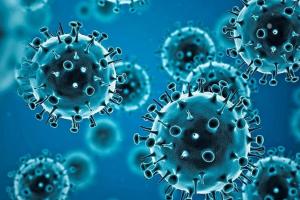Looking back on progress as Sierra Leone marks two years since first COVID-19 case
Freetown, 31 March 2022 – Exactly two years ago today, the first case of COVID-19 was reported in Sierra Leone. This index case detected in Freetown was of a Sierra Leonean national who had travelled back from abroad and tested positive while in a mandatory government managed quarantine.
Over the past two years, the country has rolled out multiple public health and social measures to limit the spread of COVID-19 and its socio-economic impact. Implementation of evidence-based interventions such as public health surveillance, testing, risk communications and public awareness on the disease have been crucial in controlling community spread of the virus. Vaccination has also been at the centre stage and is being intensified through surge campaigns to keep the pandemic under control.
Since confirmation of the first case, a cumulative total of 7 674 cases have been recorded with 125 COVID-19 related deaths. Nonetheless, there have been limitations to testing and concerns over the possible emergence of new variants of Concern (VoCs) remains.
The World Health Organization (WHO) is working in collaboration with other partners to support the country to strengthen key public health emergency and health security capacities such as surveillance and case detection, diagnosis and genomic sequencing to monitor VoCs and interest, coordination and community engagement. Throughout the pandemic, the Organization has also provided crucial technical guidance, critical supplies and commodities for Infection Prevention and Control and case management, and logistical support to the country to combat the virus.
“We’ve been at the forefront of the efforts to curtail this pandemic and we will continue to provide the best technical expertise to the government to effectively tackle COVID-19,” said Dr Steven V. Shongwe, WHO Representative in Sierra Leone. “At this stage of the pandemic, enhanced surveillance and strong laboratory capacity including genomics sequencing to detect emerging variants and improved vaccination coverage are among the critical support that WHO will continue to provide to keep the people safe”.
Vaccination remains one of the powerful defences against this pandemic. WHO is working with partner organizations to step up the uptake in the country. So far 23.3% the target population have been fully vaccinated. The coverage is still very low and this means more efforts are needed to reach the wider population to protect them from the risk of severe illness and death from COVID-19.
“COVID-19 has tested our resilience to responding to complex and protracted public health emergencies. It has taught us the critical importance of preparedness to respond efficiently to health emergencies,” said Dr Robert Musoke, Health Emergency Specialist at WHO Sierra Leone
“Over the last two years we have learned crucial public health lessons from this pandemic. We will use these lessons and adapt them to bolster the public health sector to be more resilient to future emergencies,” said Dr Shongwe.
